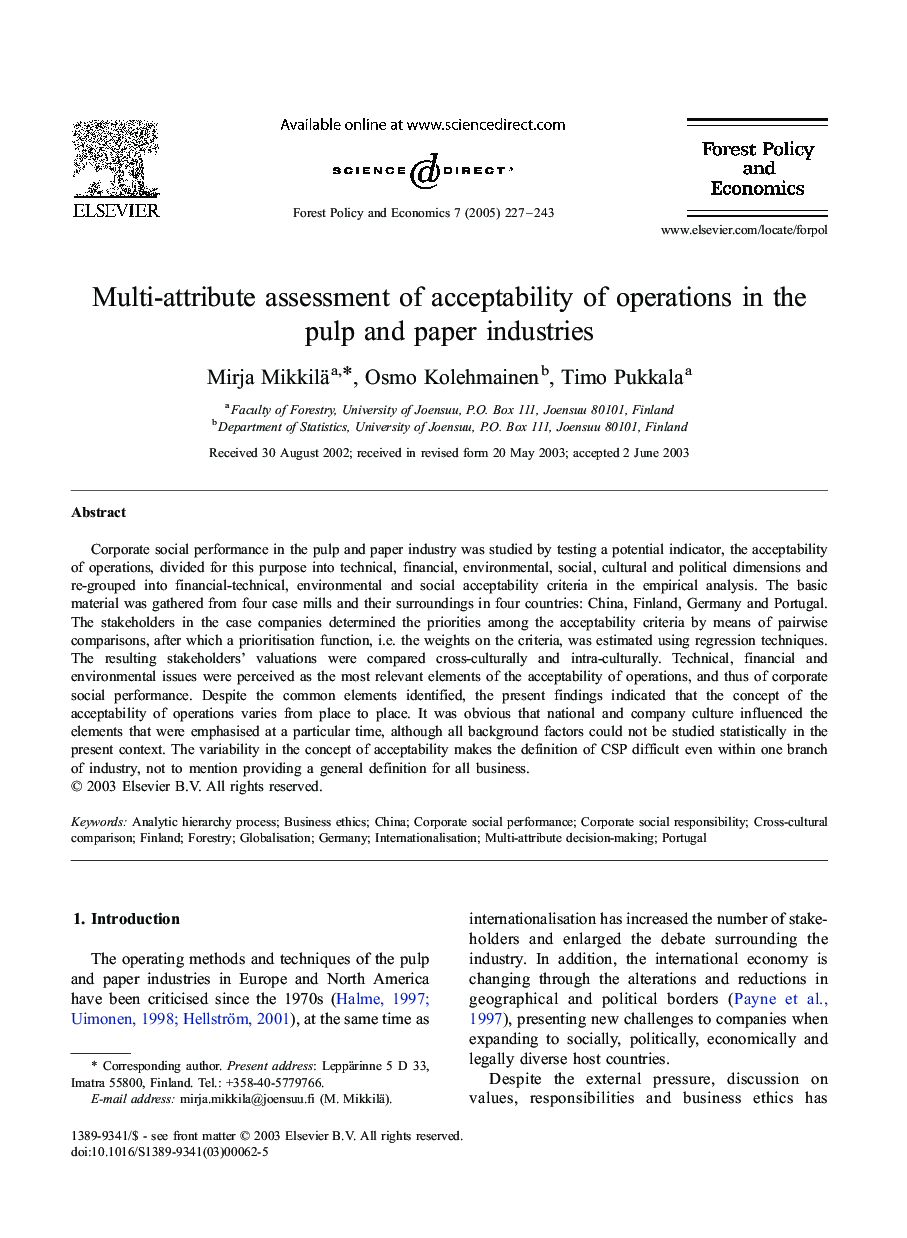| Article ID | Journal | Published Year | Pages | File Type |
|---|---|---|---|---|
| 10251127 | Forest Policy and Economics | 2005 | 17 Pages |
Abstract
Corporate social performance in the pulp and paper industry was studied by testing a potential indicator, the acceptability of operations, divided for this purpose into technical, financial, environmental, social, cultural and political dimensions and re-grouped into financial-technical, environmental and social acceptability criteria in the empirical analysis. The basic material was gathered from four case mills and their surroundings in four countries: China, Finland, Germany and Portugal. The stakeholders in the case companies determined the priorities among the acceptability criteria by means of pairwise comparisons, after which a prioritisation function, i.e. the weights on the criteria, was estimated using regression techniques. The resulting stakeholders' valuations were compared cross-culturally and intra-culturally. Technical, financial and environmental issues were perceived as the most relevant elements of the acceptability of operations, and thus of corporate social performance. Despite the common elements identified, the present findings indicated that the concept of the acceptability of operations varies from place to place. It was obvious that national and company culture influenced the elements that were emphasised at a particular time, although all background factors could not be studied statistically in the present context. The variability in the concept of acceptability makes the definition of CSP difficult even within one branch of industry, not to mention providing a general definition for all business.
Keywords
Related Topics
Life Sciences
Agricultural and Biological Sciences
Forestry
Authors
Mirja Mikkilä, Osmo Kolehmainen, Timo Pukkala,
